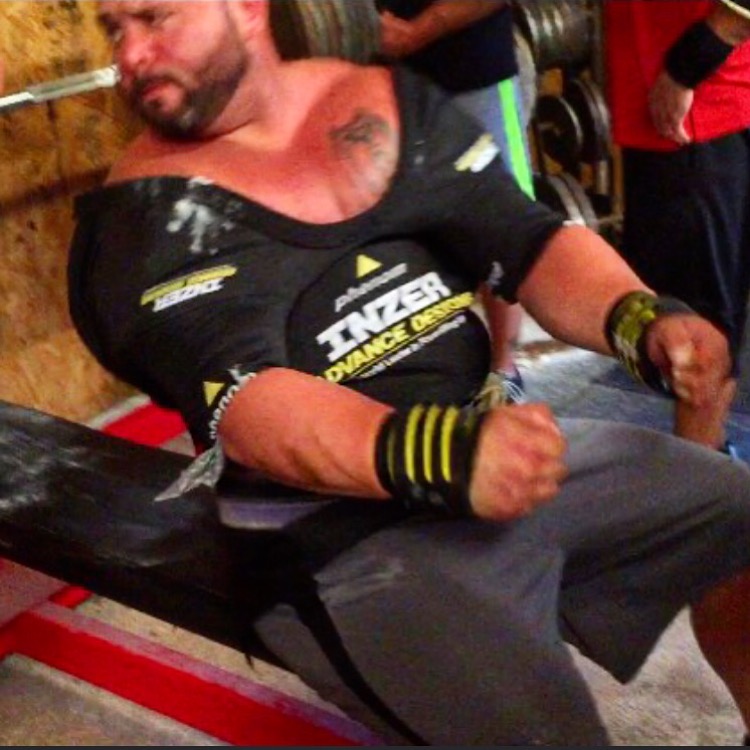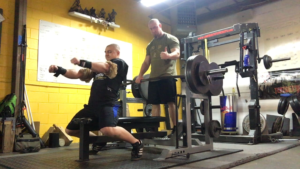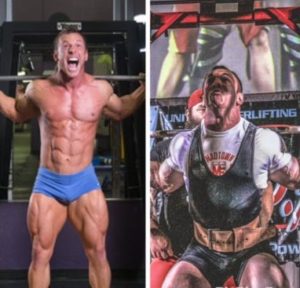
08 Feb Protective Modifications
By: Daniel Dalenberg
10/20/Life is a philosophy, not a cookie cutter program. We preach this all the time, at seminars, in articles and in our own training logs. There are lots of ways to apply the basic principles and structure of 10/20/Life and have a successful contest prep. I’m fortunate to be one of Brian’s first online clients back in 2010 and starting learning this system well before it ever had a name or a book was written. Over 5+ years, I have made a series of modifications many of which are in an effort to prevent overuse and deal with nagging problems. These are things that I have made work for me.
[wa-wps]The Squat
Problem Areas: Biceps, shoulders and wrists.
The problem areas probably seem strange to many. Sure, I occasionally get beat up and hips will be sore and tight or knees will feel awful but these areas are the ones that are always a problem. If I don’t properly take care of these areas it gets debilitating quick.
Three things I am doing to deal with this:
1. Warm Up: My squat warm up includes the usual McGill 3 and goblet squats but also includes some hammer curls and light band flies as needed. Most people wouldn’t need to include those moves before squatting, but getting my upper body warmed up has proven vital to getting under a straight bar.
2. Training: I avoid the straight bar as much as I can. I used to use a straight squat bar for all of my squatting and it gave my upper body a beating. Now on all of my accessory squatting and deloads, I use a buffalo bar. I prefer the buffalo bar because it feels the closest to a straight bar and keeps my groove the same, unlike the SSB or cambered bar, while being much easier on the arms and shoulders.
3. Recovery: Every training session I use a trigger wheel massage tool on my forearms and biceps. My chiropractor has done a fair amount of ART on my forearms and broken up some big knots that were causing lots of pain. Under his recommendation, I use this massage tool every training session to keep those adhesions under control.
The Bench Press
Problem Areas: Pecs and lower back
Pecs are a pretty obvious problem area, especially for a raw bencher; but again a weird one- the lower back. The past 4-5 meets I have struggled with lower back cramping while benching. I’ve missed at least 2 third attempt benches as a result.
Three areas of prevention:
1. Warm Up: My bench warm up always includes a warm up for my lower body as well. Getting my back warmed up has helped keep the cramping at bay. Also, for pecs I always include high rep flies with a mini band. Simple, easy and gets the muscles ready to go.
2. Training: First for my pecs- Most of my accessory benching is with either a swiss bar, fat bar or off of a low board. I’ve found that these movements put a little less stress on the pecs. I found this helpful enough that my last off season including almost no regular straight bar bench pressing. For my lower back- I made an attempt to switch to flat footed position. So far, I’m not consistent enough with it to use it in competition, but it is easier on my back. So I use the flat footed position for deloads and accessory works, saving the more abusive tucked position for when it matters most.
3. Recovery: Again, at the advice of my chiropractor I do a bit of self-massage work after bench pressing. I lean into a power rack, smashing a lacrosse ball in between the upright and the outer side of my pec, and slowly massage the area.
The Deadlift
Problem Areas: Hands
I’m lucky on the deadlift. I don’t have any issues here to work around really. Just one- my hands.
Hands? Weird. I don’t pull heavy often at all and our deadlift bar is pretty new. When I do take heavier pulls my hands always end up destroyed. I know that might seem strange, but the only area that stays sore after pulling for me is my hands. My hands just don’t stay tough since I don’t pull heavy but a few times before the meet.
Over the past year I have increased my grip work volume dramatically. Increasing the amount of work my hands are getting has helped keep them tougher and able to endure heavier deadlifting. This has kept my grip from being a weak point and eliminated most of the annoying soreness post bigger pulls.
Find Work Arounds
With every training cycle, use and abuse is getting put on your body and problem areas are bound to show up. Rather than just training through pain and ending up with a real injury, find a work around like these and prevent further damage. Finding ways to prevent the pain and keep your problems areas healthier will keep you in the gym and on the platform rather than watching from the sidelines.
Daniel Dalenberg
Latest posts by Daniel Dalenberg (see all)
- A Binge for the Record Books - August 20, 2018
- Training on the Go - July 6, 2018
- Dan Dalenberg | Deload and 5k week! - June 18, 2018








Sorry, the comment form is closed at this time.